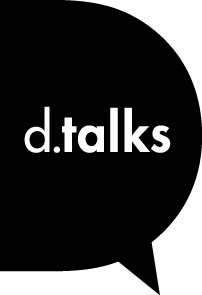image © pipikwan pêhtâkwan, 2022.
When we talk about city-building and placemaking, often we come to solutions that are practical improvements to the sitting, walking, and ability to “hang out”. While building better benches is good, it’s a single layer of the onion that makes good urban design. How our city is designed is informed about who is making the decisions. Who has access to education to become an architect or planner? What mentorship structures exist that support a diversity of representation within the field? How can we bring a level of support to anti-racism initiatives by encouraging new voices to the conference table defining the access and experience of our city design?
Hear from:
Destiny Kirumira holds a BA in Mathematics and Physics (University of Alberta) and a Master of Architecture (University of Calgary). She is currently a second-year Ph.D. student at the Peter Guo-hua Fu School of Architecture at McGill University. Her research explores the architecture of Black settlements in Canada. In addition to being a Ph.D. candidate, Destiny is also a visual artist interested in using Black portraiture to address Anti-Blackness. As both an architect and artist, her work attempts to uproot and reconcile the roots of racism in both fields with a current emphasis on Black spaces and narratives.
Ipek Türeli is the Canada Research Chair in Architectures of Spatial Justice and an Associate Professor at the Peter Guo-hua Fu School of Architecture at McGill University. Her research interests include spaces of education and campus landscapes, low-income housing and participatory design, and spatial activism. She has many publications on visualizations of the city in photography, film, exhibitions, and museums. Her research on Istanbul was awarded several fellowships and grants including those by the Graham Foundation and the Middle East Research Competition in the US and SSHRC, FRQSC and CFI in Canada. Her books include the co-edited book Orienting Istanbul (2010) and authored book Istanbul Open City (2018). In addition to her scholarly work, she has organized and contributed to several exhibitions in recent years. One of her ongoing projects is Architecture Playshop: Developing critical literacy with young children around climate change, forced migration and the built environment, which originated as an invited program for the Korean Pavilion at the 2020 Venice Biennale. More detail here.
Wendy Koo is a Coordinator at The City of Calgary that leads one of the many teams that contribute to the daily work of city-building. As a Chinese-Canadian immigrant, she has lived in 4 countries and many interesting cities that have influenced her professional practice. She currently works and lives in the Treaty 7 area with a family that includes two energetic kids. Wendy has over 15 years of experience that has centred on downtown and inner city redevelopment. Over the last few years, her focus has been more on people and places, including creating space for the hard conversations around equity, diversity and inclusion within the planning profession. Prior to joining The City of Calgary in 2013, she was a planner at The Regional Municipality of Wood Buffalo in northern Alberta, an urban planner and designer at HOK and a redevelopment planner for the Centre for Addiction and Mental Health in Toronto.
Friday October 28, 7pm MT (online)
This talk is produced in partnership with the Calgary Public Library and with the support of Canada Council for the Arts. The events are free, open to the public. RSVP to receive a link to attend.
The talks are part of the Interrupt, Reframe issue of FOLD. The issue is published by d.talks with the support of Canada Council for the Arts, in addition to the ongoing support of Calgary Arts Development and the Alberta Foundation for the Arts.


